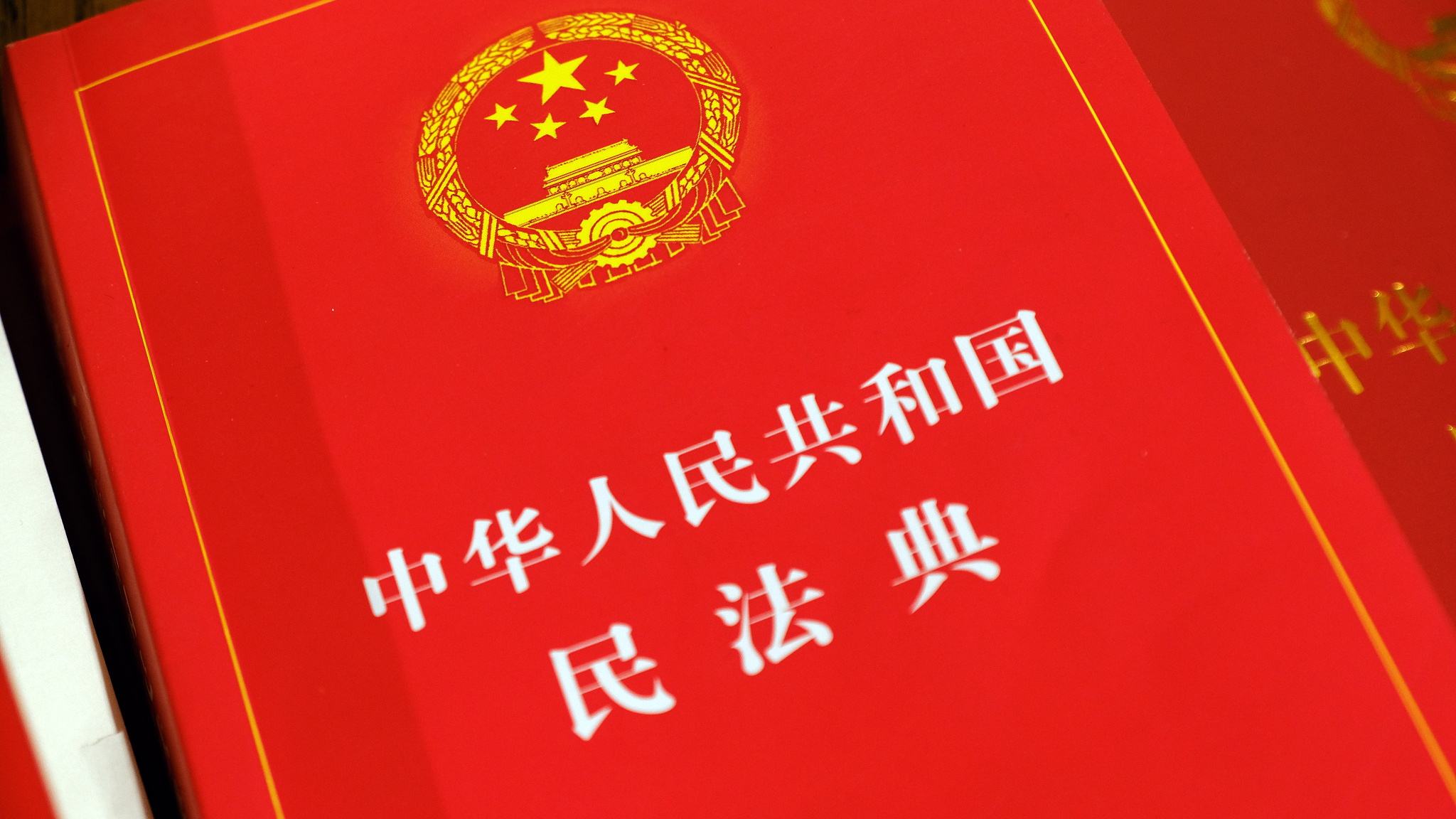
Editor's note: Zhang Can is an assistant judge of Beijing Intellectual Property Court. The article reflects the author's views, and not necessarily those of CGTN.
The Civil Code of the People's Republic of China was adopted by the third session of the 13th National People's Congress on May 28, 2020, and comes into force on January 1, 2021. The promulgation of the Civil Code is a great achievement in the construction of rule of law with Chinese characteristics in the new era, which is a major event in both Chinese legal history and the entire history of the country.
Some argue that the Civil Code is milestone legislation that would better protect people's civil rights and offer strong legal support to the country's development in every respect. However, before the passage of the Civil Code, other major civil laws including General Provisions of the Civil Law, the Contract Law, the Property Law, the Tort Law, etc. had been enacted successively. They have been serving the purpose of the protection of people's essential civil rights as well and have actually operated well in practice. Then, why do we regard the Civil Code as a milestone in civil legislation and what's the relationship between the newly passed Code and the previous civil laws? Besides, how should we view the significance of the rolling out of the Civil Code?
The simplest reason for its significance is that it is the first law officially promulgated with the name of Code since the establishment of the People's Republic of China. From the perspective of the science of law, the codification of legal rules in a certain field is not merely a mechanical mixture or compiling of the scattered rules in separate laws in that field. Instead, it involves abstracting generalized legal concepts from judicial practices, eliminating the incongruity of conflicting rules in separate laws, and creating novel legal principles to tackle emerging legal issues.
Thus, the codification of laws has never been a sort of cultural movement. Rather, it requires superb wisdom of lawmakers and advanced legislative techniques, which can be extremely complicated, comprehensive and challenging.
The promulgation of the Chinese Civil Code is determined by various factors – the maturity of the authority's legislation competency, the development stage of our economy, society and culture; and more importantly, the implementation of the strategy of governing the country by rule of law in an all-round way. The Code organically integrates the existing legal rules of separate civil laws into a harmonious codified rule system that can unify the application of law across the country so that people's extensive civil rights could be better protected.

The Civil Code will impact almost every aspect of Chinese citizens' daily lives. /VCG
The Civil Code will impact almost every aspect of Chinese citizens' daily lives. /VCG
In addition, the Code incorporates a number of explicit rules regarding the protection of internet virtual property, personal data and information. The protection and preservation of the ecological environment in civil transaction activities are clarified as statutory obligations in the Code. As a response to the objective needs of the development of the digital age and people's yearning for a better ecological environment, these rules and principles are modern and innovative, and cannot find precedents in the civil codes of other countries, like the French Civil Code or the German Civil Code. Therefore, the Chinese Civil Code has made a remarkable contribution to legal civilization globally in this respect.
Undoubtedly, the Code will have significant impacts not only on almost every aspect of Chinese citizens' daily lives but also on the overall landscape of the country's political, economic, cultural and social spheres. It has also promoted the development of civil law and its codification to some extent from a global perspective. In light of all these, it is not exaggerated to call it milestone legislation.
Despite the fact that the passage of the Civil Code means a lot to the legal community, its profound significance should not be viewed only from the angle of civil law, as the Civil Code is the encyclopedia of our social life and has far-reaching political, economic, social and cultural influences.
As mentioned above, the Code represents the legislators' wisdom and unifies the application of law in the judiciary so that the people's basic rights can be better protected. The protection of people's rights equals the restraint on public powers. From the executive branch's perspective, the Civil Code means the boundaries of public power shall be strictly complied with. In this sense, the civil code can promote the administration according to law and calls for the modernization of the national governance system and capacity.
The Civil Code also plays an important role in the economic area for it sets the basic rules for the market economy, such as the free movement of production elements, party autonomy and protection of property. For instance, the real rights part of the Code provides for the creation of real rights. And through the rules set forth in the contract part of the code, we can realize the free sale and purchase of these real rights which could be a piece of land or the ownership of a small product. In the transfer of property, the goal of the optimized distribution of resources could be achieved.
What's more, the civil code embodies important social and cultural significance, as the marriage and family part and the succession part of the code make clear each family member's rights and obligations and set the minimum standard for their interrelationship. It also addresses the issue of community debts between wife and husband which have drawn a lot of public attention. Generally speaking, by the allocation of rights and obligations and judging what is a virtue and what is evil, the Civil Code advocates the core values of Chinese socialism in a legal manner.
(If you want to contribute and have specific expertise, please contact us at opinions@cgtn.com.)

